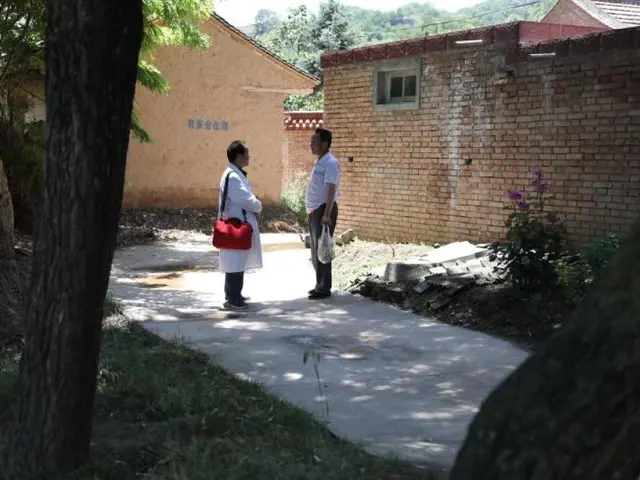Safeguarding the health of over 1,500 residents in a mountain village in northwest China's Gansu Province is like a relay race for Li Kewei, 76, and his son Li Xiaoyan, 48.
After finishing professional training at the Gansu University of Chinese Medicine in 2000, the son returned to his hometown and walked in the footsteps of his father's lifelong career as a village doctor.
They hail from the Yangou Village of Wangchuan Township in the city of Tianshui, where patients had to drive for one hour to reach the nearest hospital.
Though both father and son are doctors, each has their own unique experience.
Li Kewei was dubbed a "barefoot doctor"-- a colloquial reference to numerous primary health care workers who received basic medical training and treated hundreds of millions of farmers in rural China.
Under a cooperative medical system in the 1960s, "barefoot doctors" like Li Kewei, many of whom are primarily farmers, have played important roles in improving health care in rural areas.
In Li Xiaoyan's childhood memories, his father always carried an old wooden medical kit and stayed on call around the clock to see patients. When it came to rainy days, he had to wade through mud and dirt, walking barefoot to reach patients' homes without delay.
"At that time, villagers relied on these part-time medics when they were ill, hospitals are too far away and expensive. My father would often offer free help to patients in financial difficulties," said Li Xiaoyan.
Villagers often brought their treasured fresh fruits and home-made food for Li's father as a token of their gratitude.
The young man was impressed by his father's dedication and the villagers' sincerity, so he took over the baton from his retired father in 2002.
By then, the country's rural medical system had undergone a remarkable revamp with investments from the government. A large number of barefoot doctors had been trained to become licensed practitioners.
In 2012, the first standardized village clinic was established in Yangou Village, and Li Xiaoyan was appointed as one of the first registered doctors.
He works in a well-equipped office every day, bidding farewell to his father's old way of seeing patients.
Li is part of the household-based health care system, providing treatment as a family doctor to the villagers. He also shoulders responsibility for epidemic prevention and monitoring.
"There are 1,535 residents in Yangou Village, most of whom are elderly people with chronic diseases living by themselves. So I need to keep an eye on their conditions," said Li Xiaoyan.
Li Furong, one of Li's patients, reported worsening symptoms of inappetence and weight loss during a family visit. After preliminary treatment, Li accompanied the 51-year-old to a city hospital for further examination.
"I was diagnosed with a tumor in my stomach. I was so lucky to come in time for surgery, and my body is recovering these days," said Li Furong.
During the past few years, Gansu has set up 14,080 village clinics, 1,158 township hospitals, and 75 county-level public hospitals in impoverished counties, according to the provincial health commission.
Patients with common diseases can receive diagnosis and treatment at primary-level healthcare institutions and village doctors can be guided through telemedicine by specialists in higher-level hospitals, said Wang Xinglong, director of a central hospital of Wangchuan.
Li Xiaoyan carries out over 3,000 diagnoses and treatments each year with an annual income of over 50,000 yuan (about 7,140 U.S. dollars).
Last year, his daughter Li Yurong was admitted to the Dingxi Teachers College, majoring in nursing. Born in a family of village doctors, the young lady has decided to carry forward the legacy.
 简体中文
简体中文

